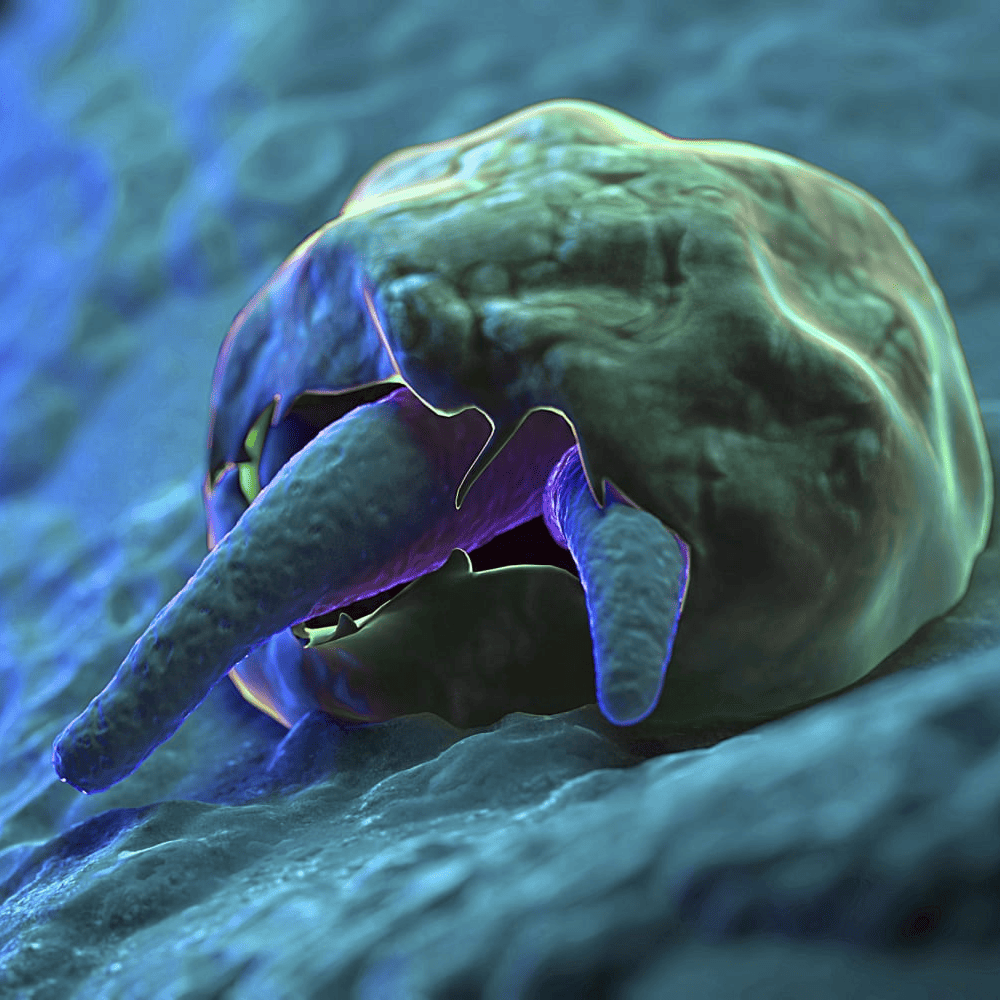Explore Common Parasites and Their Symptoms

Tapeworm
A long, flat parasite that can live in your intestines and absorb nutrients from your food.
- Digestive issues
- Weight loss
- Fatigue
- Abdominal pain

Roundworm
A common parasite that can cause a variety of symptoms, including digestive problems and fatigue.
- Bloating
- Abdominal pain
- Coughing
- Weight loss

Giardia
A microscopic parasite that causes diarrhea and other gastrointestinal issues.
- Diarrhea
- Stomach cramps
- Nausea
- Dehydration

Hookworm
A parasite that can cause anemia and fatigue by feeding on your blood.
- Anemia
- Weakness
- Fatigue
- Skin irritation

Pinworm
A small worm that causes itching around the anus, especially at night.
- Itching around the anus
- Restlessness
- Abdominal pain
- Irritability

Flukes
Flatworms that can infect the liver, lungs, or blood, leading to severe organ damage.
- Liver inflammation
- Abdominal pain
- Fever
- Fatigue

Whipworm
A parasite that causes inflammation of the intestines, leading to diarrhea and weight loss.
- Diarrhea
- Weight loss
- Anemia
- Abdominal pain

Toxoplasma
A microscopic parasite often contracted from undercooked meat, causing flu-like symptoms.
- Flu-like symptoms
- Muscle aches
- Fever
- Headaches

Cryptosporidium
A microscopic parasite that causes respiratory and gastrointestinal illness, often through contaminated water.
- Diarrhea
- Dehydration
- Stomach cramps
- Fever